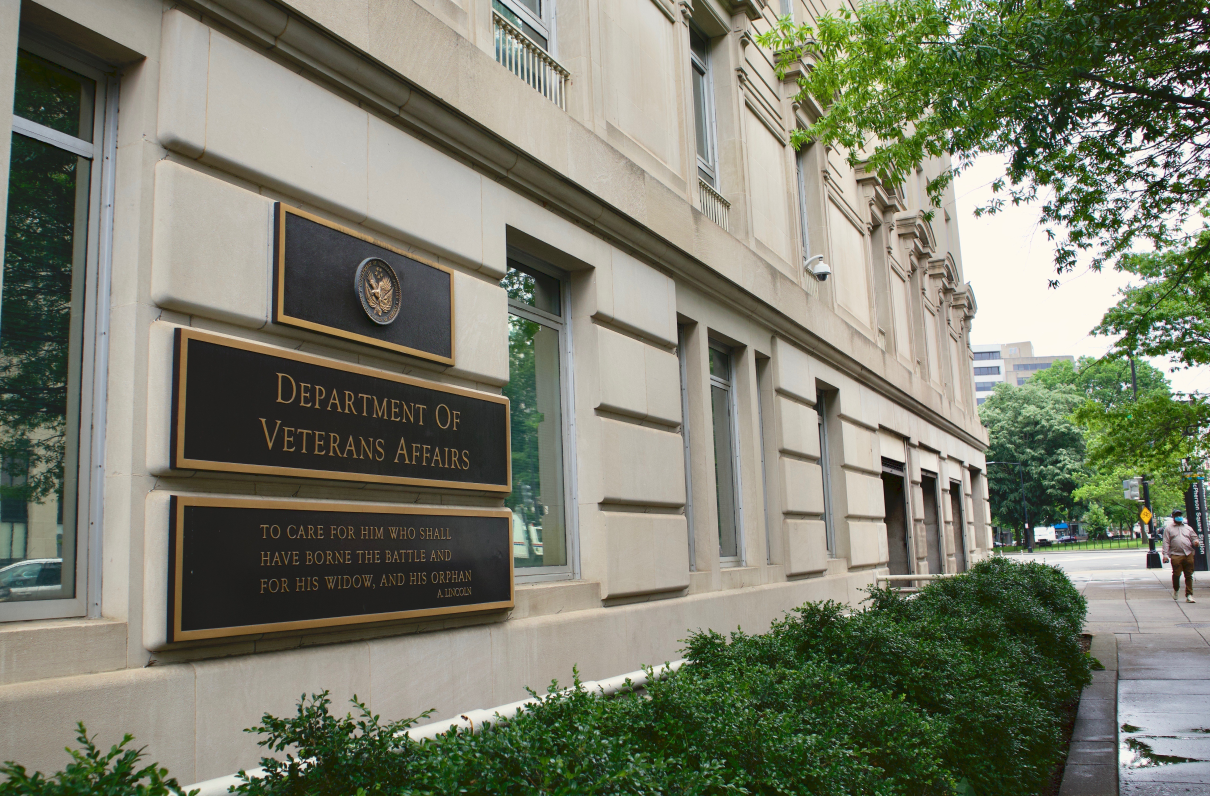Editor’s note: This article by Patricia Kime originally appeared on Military.com, a leading source of news for the military and veteran community.
Thousands more veterans will be eligible for Veterans Affairs health care beginning Saturday under a law passed Aug. 10 that expanded benefits for former service members sickened by environmental exposures.
According to VA officials, "tens of thousands" of veterans can enroll in VA health care starting Oct. 1. The largest group to be eligible are post-9/11 veterans who meet certain criteria and hadn't previously enrolled. They will have a one-year window to sign up, according to the law.
VA Secretary Denis McDonough told reporters during a meeting of the Defense Writers Group in Washington, D.C., on Monday that the VA has hired additional staff to handle claims and increased demand for health care for veterans.
"Saturday, we start an open enrollment period at [the Veterans Health Administration] for health benefits. That's an important moment for us," McDonough said.
To be eligible, veterans would need to have served on active duty in a combat theater after the 1991 Persian Gulf War, served against a hostile force after Nov. 11, 1998, or were discharged or released from active duty from Sept. 11, 2001, to Oct. 1, 2013.
Some additional groups of Vietnam veterans and Gulf War vets are also eligible to enroll under certain circumstances.
[ARE YOU COVERED?: Check Out MOAA's PACT Act Resources]
Vietnam-era veterans will be eligible for care if they served any time in:
- Vietnam from Jan. 9, 1962, to May 7, 1975
- Thailand at a U.S. or Royal Thai base from Jan. 9, 1962, to June 30, 1976
- Laos from Dec. 1, 1965, to Sept. 30, 1969
- Guam or American Samoa -- or their territorial waters -- from Jan. 9, 1962, to July 31, 1980
- Johnston Atoll, or a ship that called there, from Jan. 1, 1972, to Sept. 30, 1977
And any veterans who served after the Persian Gulf war and earned an expeditionary medal, a campaign-specific medal or another combat theater award, or a veteran who engaged in combat against a hostile force on or after Nov. 11, 1998, also will be eligible beginning Oct. 1.
[RELATED: Photo Gallery: Celebrating the PACT Act’s Passage]
"I highly encourage these Veterans to apply now for the health care they've earned and deserve," McDonough said Wednesday in a press release. "This expansion will bring generations of new Veterans into VA health care, and increase the health care benefits of many more, which will result in the one outcome that matters most: better health outcomes for veterans."
The Sgt. First Class Heath Robinson Honoring our Promise to Address Comprehensive Toxics, or PACT Act, named for an Ohio National Guard soldier who died of lung cancer in 2020 at age 39, broadened health care services and disability compensation to an estimated 1 million veterans thought to be exposed to chemicals, pollution and other exposures during their military service.
In addition to health care expansion, the law designated 23 illnesses as presumed to be related to exposure to burn pits used in Iraq, Afghanistan and elsewhere as part of the Global War on Terrorism, and it added two conditions -- hypertension and monoclonal gammopathy of undetermined significance -- for Vietnam veterans.
The designation allows veterans with the illnesses to receive disability benefits more expeditiously since they aren't required to prove that their disease is service connected, a process that can be drawn out and that entails extensive documentation and medical assessments.
[RELATED: What You Need to Know About Camp Lejeune Lawsuits]
The Department of Veterans Affairs established a web page to keep former service members informed of their benefits under the PACT Act and is encouraging them to apply for benefits and care by going to the site or calling VA at 1-800-MYVA411, or 1-800-698-2411.
Under the law, veterans can get screened for toxic exposures as well -- meeting with a health provider to determine whether they were exposed or have any health conditions related to the exposure.
The VA began a pilot program for these short screenings, finding that 37.4% of the 13,380 veterans screened at 12 medical centers had exposure concerns.
"These results will help VA make toxic exposure screenings available to all veterans in early November ... and make sure that VA provides all toxic-exposed veterans with the care they need and benefits they deserve," VA officials said in a statement.
According to the VA, the department set an all-time record for disability compensation claims filed online, and more than 70,000 PACT Act-related claims have been filed to date.
The legislation is expected to cost roughly $277 billion through 2031.
